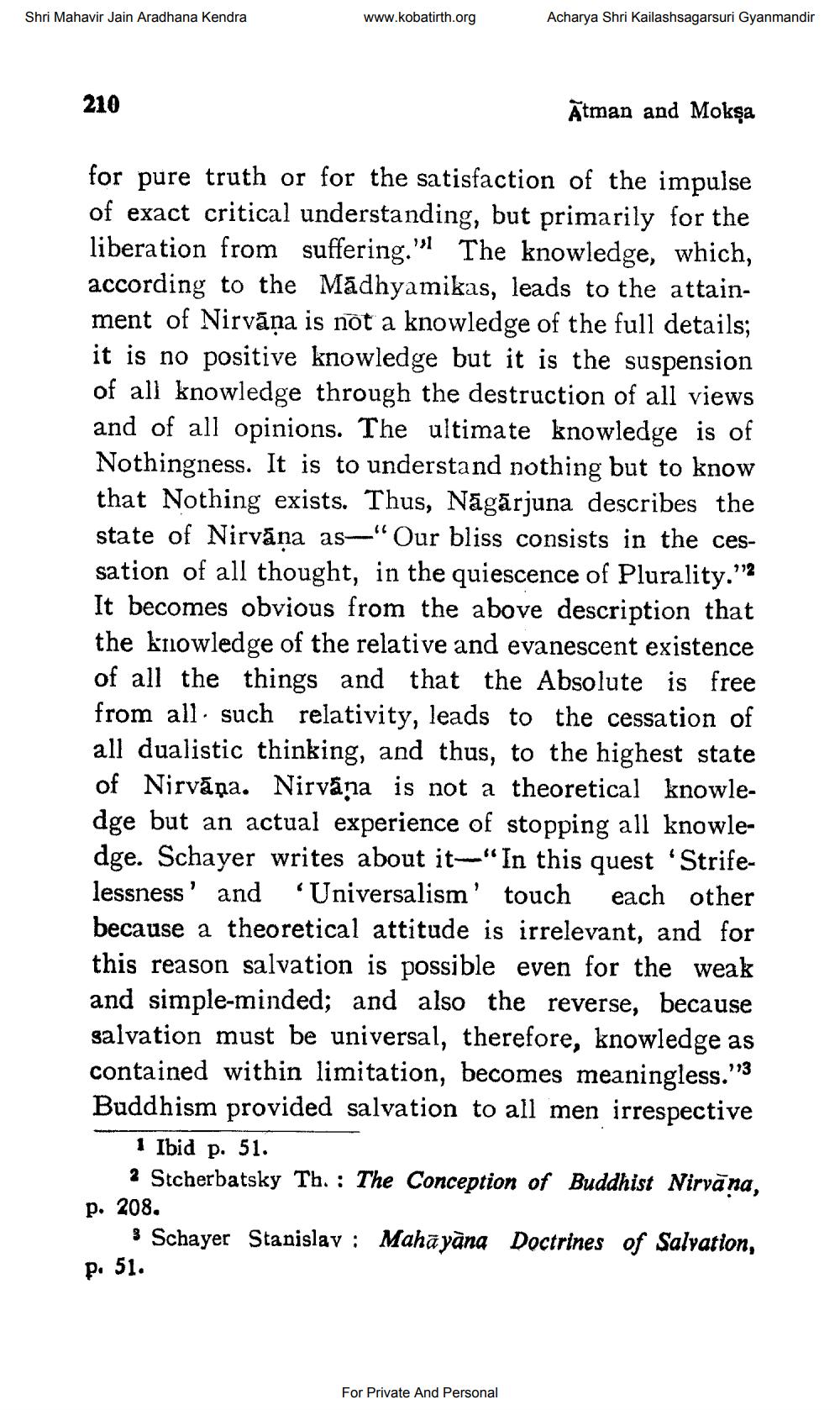________________
Shri Mahavir Jain Aradhana Kendra
www.kobatirth.org
Acharya Shri Kailashsagarsuri Gyanmandir
210
Ātman and Moksa
for pure truth or for the satisfaction of the impulse of exact critical understanding, but primarily for the liberation from suffering." The knowledge, which, according to the Madhyamikas, leads to the attainment of Nirvāna is not a knowledge of the full details; it is no positive knowledge but it is the suspension of all knowledge through the destruction of all views and of all opinions. The ultimate knowledge is of Nothingness. It is to understand nothing but to know that Nothing exists. Thus, Nagarjuna describes the state of Nirvana as—“Our bliss consists in the cessation of all thought, in the quiescence of Plurality."? It becomes obvious from the above description that the knowledge of the relative and evanescent existence of all the things and that the Absolute is free from all. such relativity, leads to the cessation of all dualistic thinking, and thus, to the highest state of Nirvāņa. Nirvana is not a theoretical knowledge but an actual experience of stopping all knowledge. Schayer writes about it-"In this quest 'Strifelessness' and 'Universalism' touch each other because a theoretical attitude is irrelevant, and for this reason salvation is possible even for the weak and simple-minded; and also the reverse, because salvation must be universal, therefore, knowledge as contained within limitation, becomes meaningless."3 Buddhism provided salvation to all men irrespective
1 Ibid p. 51.
2 Stcherbatsky Th. : The Conception of Buddhist Nirvana, p. 208.
Schayer Stanislav : Mahāyāna Doctrines of Salvation, p. 51.
For Private And Personal




